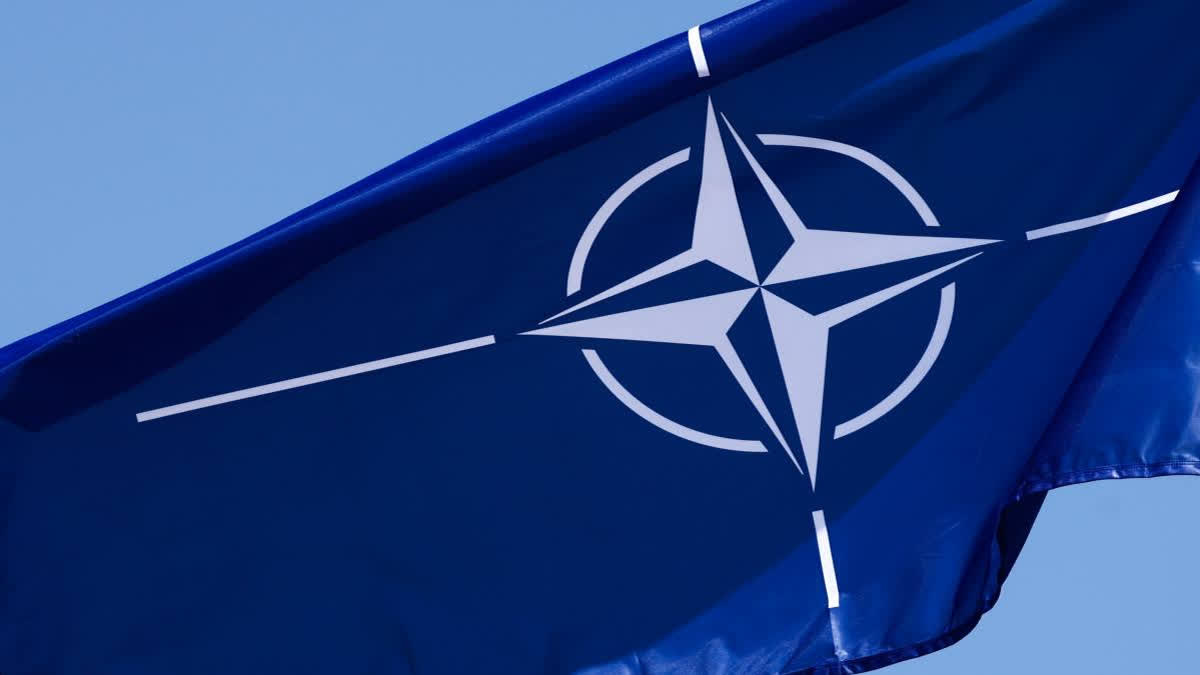On 4th April, NATO celebrated its 75th anniversary in Brussels, its headquarters with much fanfare. Foreign Ministers of the 32-member organisation, which covers around one billion population on both sides of the Atlantic, gathered to laud the organisation which, in the words of its Secretary General Jens Stoltenberg, has gone "bigger, stronger and more united than ever…all because of its solemn promise; that we stand together and protect one another as we have for 75 years". Monuments in Brussels were suitably decorated for the occasion, even the famous 'Manneken Pis' statue got a special NATO attire for the day.
Membership and Objectives of NATO
Established originally by twelve countries namely Belgium, Canada, Denmark, France, Iceland, Italy, Luxembourg, the Netherlands, Norway, Portugal, the United Kingdom and the United States by a treaty signed on April 4, 1949, in Washington D.C. The organisation added eighteen members till 2022 of which Greece, Turkey (now Turkiye), Germany (FRG) and Spain were the only members from West Europe, the rest 14 were from Eastern Europe, thus expanding it exponentially and covering the entire Eastern Europe ignoring the concerns regularly expressed by the Russia. Finland (2023) and Sweden (2024) are the latest entrants of NATO bringing the membership to 32.
The declared fundamental tasks of NATO, according to its charter, were security, consultation, deterrence and defence, adding that crisis management and partnership were also essential to enhancing security and stability in the Euro-Atlantic area. NATO’s stated core values are democracy, liberty and the rule of law. Its following four arms- North Atlantic Council, the apex body represented by the NATO ambassadors of the member countries, takes decisions unanimously. Military Command which is the Allied Command for operational purposes. Integrated Military forces comprising the contingents from member countries. It has participated in 200 military conflicts including 20 major ones. Secretary General like the SG of UNO.
Evaluation
No doubt that formed during the height of the Cold War, NATO was able to safeguard the interest of its members from the Warsaw Pact countries throughout the duration of the Cold War. NATO was established to defend its members "against possible Soviet attack on Atlantic and European nations" and the collective force of NATO as well as the nuclear deterrent did not allow escalation of tension to war despite the Cuba crisis. Thus, NATO successfully ensured that the war remained 'Cold' only during the entire Soviet era.
However, the situation (and perhaps the goalposts also) changed for NATO at the end of the Cold War due to the collapse of the Soviet system. Now, the world has become unipolar with no country in a position to challenge NATO under the leadership of the U.S. of America and there was no justification for the continuation of NATO which should, therefore, have been dismantled. But this did not happen at all!
